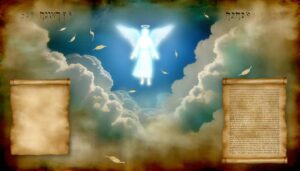Meaning Of Moths In The Bible: Hidden Warnings
In the Bible, moths represent impermanence, decay, and the ephemeral nature of material wealth and human achievements. References in Isaiah, Hosea, and Proverbs underline their symbolism to illustrate the deterioration of worldly riches and the frailty of human pride.
The Book of Job employs the moth metaphor for the vulnerability of human existence, likening humanity to fragile “houses of clay.” Jesus extends this symbolism in Matthew by advising against earthly treasures prone to moth-induced decay, highlighting the superiority of spiritual over material pursuits. These symbolic uses encourage a deeper exploration of biblical values and teachings on eternal truths.

Meaning of Moths in the Bible: Symbolism of Decay, Judgment, and Impermanence
| Aspect | Description |
|---|---|
| Definition | Moths are small insects known for destroying fabric and organic materials. |
| Biblical Role | Used metaphorically to illustrate destruction and the frailty of worldly things. |
| Symbolism | Decay, judgment, transience, and the vanity of material possessions. |
| Key Scripture | Matthew 6:19 – “Where moth and rust doth corrupt…” |
| Spiritual Insight | Reminds believers to store treasures in heaven, not in perishable things. |
Moths in the Old Testament

In the Old Scriptures, moths are frequently used as symbols of impermanence and decay, reflecting the transient nature of earthly possessions and human endeavors.
This metaphorical representation can be observed in texts such as Isaiah 50:9 and Hosea 5:12, where moths signify the inevitable deterioration of material wealth and the frailty of human pride.
The presence of moths in these passages underscores a theological message: the ultimate futility of placing trust in worldly goods and achievements.
By invoking the imagery of moths, the Old Covenant authors prompt readers to contemplate the ephemerality of life and to seek enduring values rooted in spiritual faith and divine wisdom.
This motif serves as a poignant reminder of the imperishable nature of spiritual pursuits.
Symbolism in Job

The Book of Job expands upon the motif of moths by using them to illustrate the vulnerability and fleeting nature of human existence. In Job 4:19, humanity is compared to ‘houses of clay‘ susceptible to destruction by moths, symbolizing fragility.
This metaphor conveys the transient and precarious condition of life, emphasizing human impermanence. Job’s lamentations further explore this theme, highlighting the ease with which life can disintegrate.
The moth therefore serves as an emblem of decay and ephemerality, confronting readers with the stark reality of mortality. By invoking the moth, the text underscores a theological reflection on human suffering, urging contemplation of life’s transient nature in the broader context of divine justice and cosmic order.
Proverbs and Impermanence

In the Book of Proverbs, moths serve as a potent symbol of impermanence, underscoring the transient nature of material wealth and earthly pursuits.
This imagery is employed to convey wisdom through metaphors, illustrating the futility of placing trust in temporal entities.
Symbolism of Moths
Proverbs frequently employ the imagery of moths to underscore themes of impermanence and the fleeting nature of material wealth.
In biblical literature, moths serve as a metaphor for decay and the inevitable decline of earthly possessions. Proverbs 27:24 states, ‘for riches do not endure forever, and a crown is not secure for all generations,’ illustrating the transient quality of material success.
Moths, which consume and destroy fabric, symbolize the vulnerability of wealth to deterioration. This imagery impels readers to seek enduring values, such as wisdom and spiritual integrity, over ephemeral riches.
Temporal Nature Highlighted
Biblical proverbs often emphasize the transient nature of worldly possessions, using vivid imagery to illustrate the fleeting essence of material success.
Proverbs 23:5 poignantly asks, “Wilt thou set thine eyes upon that which is not? For riches certainly make themselves wings; they fly away as an eagle toward heaven.” This metaphor underscores the impermanence of wealth, likening it to an elusive, ephemeral entity.
Similarly, moths appear in the Bible as symbols of decay and impermanence. In Matthew 6:19-20, Jesus advises against hoarding treasures on earth “where moth and rust destroy,” highlighting the inevitable deterioration of earthly riches.
Consequently, moths reinforce the biblical theme that true value lies not in material accumulation but in spiritual wealth.
Wisdom Through Metaphors
Metaphorical expressions in scripture, particularly those employing the imagery of moths, serve as profound tools for imparting wisdom about the transient nature of worldly possessions.
In Proverbs, moths symbolize decay and impermanence, emphasizing the futility of material wealth. This metaphorical use encourages a focus on spiritual rather than temporal pursuits.
The moth, which destroys fabrics and perishes quickly, epitomizes the ephemeral quality of earthly riches. Such imagery is not merely poetic but instructive, guiding believers toward a deeper understanding of life’s fleeting nature.
Moths in Isaiah

In the Book of Isaiah, moths are employed as potent symbols of decay and transience, illustrating the inevitable decline of earthly power and human endeavors.
Isaiah 50:9 and 51:8 utilize the imagery of moths to convey the ephemeral nature of human pride and material wealth. In these passages, the prophet Isaiah warns that just as moths deteriorate fabric, so too will God’s judgment dismantle the seemingly robust structures of human arrogance.
This metaphor serves a dual purpose: it emphasizes the futility of placing trust in temporal achievements and underscores the enduring nature of divine justice.
Through the symbolism of moths, Isaiah persuasively communicates a theological message about the impermanence of worldly entities in contrast to eternal spiritual truths.
Teachings of Jesus

Building upon the prophetic symbolism in Isaiah, the teachings of Jesus also employ the imagery of moths to elucidate themes of spiritual vigilance and the transient nature of material possessions.
In Matthew 6:19-20, Jesus admonishes his followers not to store up treasures on earth ‘where moth and rust destroy,’ but to accumulate treasures in heaven. This metaphor serves as a poignant reminder of the impermanence of worldly wealth, contrasting it with the enduring value of spiritual riches.
The moth, a seemingly insignificant creature, becomes a powerful symbol of decay and ephemerality, urging believers to prioritize their spiritual well-being over material gain.
Consequently, in Jesus’ teachings, the moth underscores the importance of focusing on eternal, rather than temporal, pursuits.
Spiritual Lessons From Moths

Drawing from biblical references, the moth serves as a nuanced symbol that imparts profound spiritual lessons about the inevitability of decay and the importance of maintaining spiritual integrity.
Moths, with their propensity to consume and destroy material possessions, are frequently invoked as reminders of the transient nature of worldly treasures. They underscore the necessity of prioritizing spiritual wealth over material accumulation.
| Symbol | Biblical Reference | Spiritual Lesson |
|---|---|---|
| Moth | Matthew 6:19-20 | Transience |
| Decay | Isaiah 50:9 | Impermanence |
| Integrity | Job 13:28 | Spiritual Vigilance |
In essence, moths serve as metaphoric agents, urging believers to focus on eternal values and divine principles, rather than ephemeral, earthly gains.
Conclusion
Moths manifest multifaceted meanings throughout biblical texts, symbolizing transience, decay, and divine judgment.
In Job and Proverbs, moths metaphorically mirror mortality and material impermanence. Isaiah illustrates their insignificance and ultimate destruction under divine will.
Jesus’ teachings further employ moths to emphasize the ephemeral nature of earthly treasures compared to eternal spiritual wealth.
Through consistent alliteration and allegory, the biblical narrative uses moths to underscore essential spiritual truths about human existence and divine priorities.






